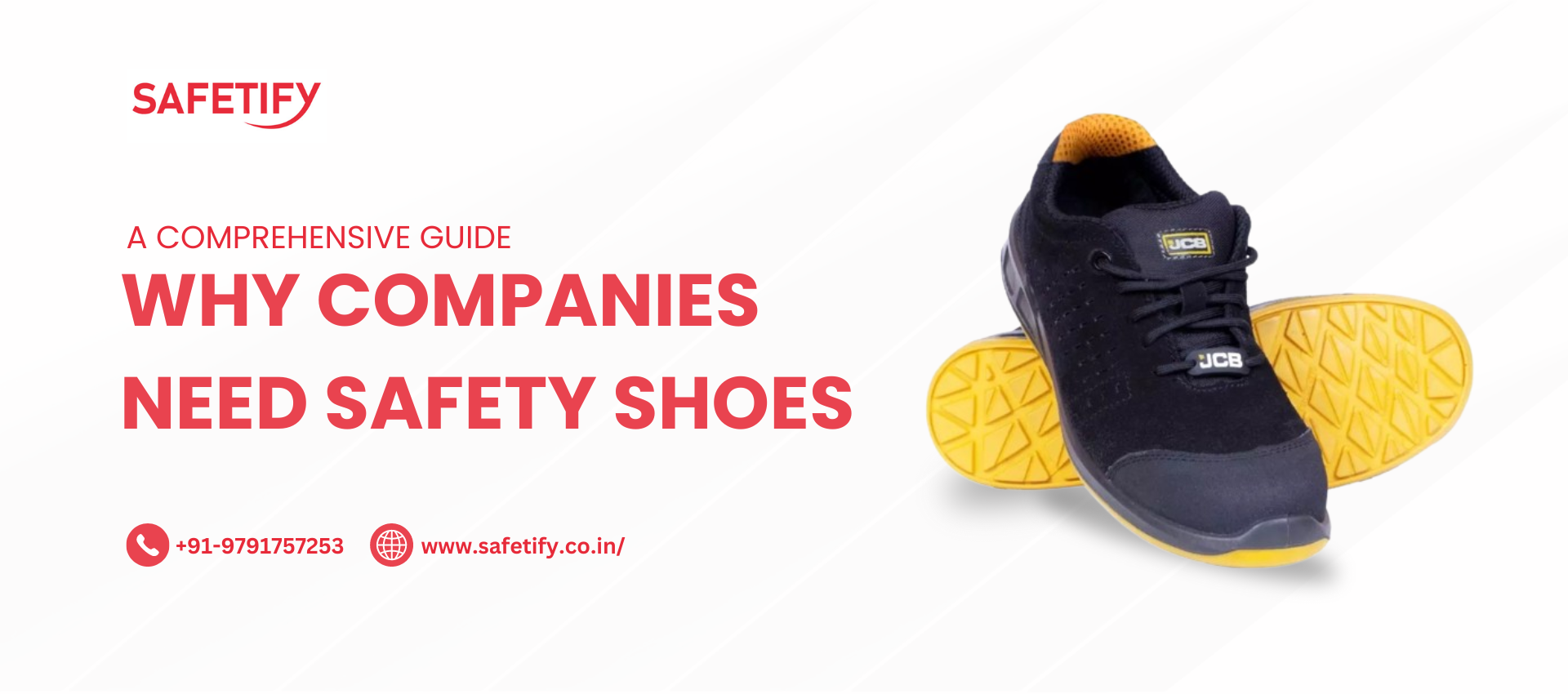
In a busy construction site where a single misstep could lead to a serious injury or a factory floor where one wrong move might cause an accident. Safety shoes might seem like a small detail, but they play a huge role in keeping workers safe across many industries.
For businesses in construction, logistics, electronics, and more, having proper safety shoes is crucial not just to meet regulations, but to keep workers safe and productive. With workplace injuries costing billions every year, investing in safety shoes is more than just a rule it's a smart decision that benefits everyone.

Construction sites are full of dangers—falling tools, sharp debris, and uneven ground. Safety shoes with steel or composite toes help protect workers from these hazards. According to a Labor Statistics, foot injuries in construction can lead to an average of 3.6 lost workdays per incident. By providing quality safety footwear, companies can greatly reduce these accidents and enhance site safety.
In logistics and warehousing, workers are constantly handling heavy loads and navigating messy environments. Safety shoes with slip-resistant soles and reinforced toes help prevent slips, trips, and falls, which are common in these settings. The National Safety Council reports that slips, trips, and falls account for more than 25% of workplace injuries, emphasizing the need for effective footwear.
Electronics manufacturing involves sensitive components and sometimes hazardous materials. Safety shoes with anti-static features protect both workers and delicate equipment. Additionally, durable shoes help reduce fatigue from standing and walking, which can boost overall productivity.
In automobile manufacturing, workers face risks from heavy machinery, sharp metal parts, and hot surfaces. Safety shoes with heat-resistant soles and puncture-resistant features are vital for preventing injuries. Data from the Bureau of Labor Statistics shows that foot injuries in this industry average 5.7 days of lost work, highlighting the importance of protective footwear.
The chemical and cement industries have unique risks, including exposure to hazardous substances and heavy equipment. Safety shoes with chemical-resistant materials and reinforced toes are essential for preventing injuries and protecting against spills.
In the fast-moving consumer goods (FMCG) sector, workers face risks from falling products and moving machinery. Safety shoes with impact-resistant features help reduce these risks, contributing to better safety and fewer accidents.
Heavy industries, like mining and steel manufacturing, involve extreme risks from heavy machinery and high temperatures. Safety shoes with steel toe caps and heat-resistant soles are crucial for preventing injuries. Reports indicate that protective footwear can greatly reduce injury rates in these high-risk environments.
Safety shoes are more than just a rule they're a key part of keeping your workplace safe and productive. Whether on a construction site, in a warehouse, or on a factory floor, the right footwear can protect your workers and help your company run smoothly. To find the best safety equipment for your needs, check out Safetify, where you'll find top quality safety shoes suited to any industry.
Are you ready to take the next step in protecting your team and improving your business?
The Secrets to Top Notch PPE A Guide to Safety and Standards
August 27th, 2024Choosing the Right Safety Equipment Protecting Your Workforce
August 25th, 2024